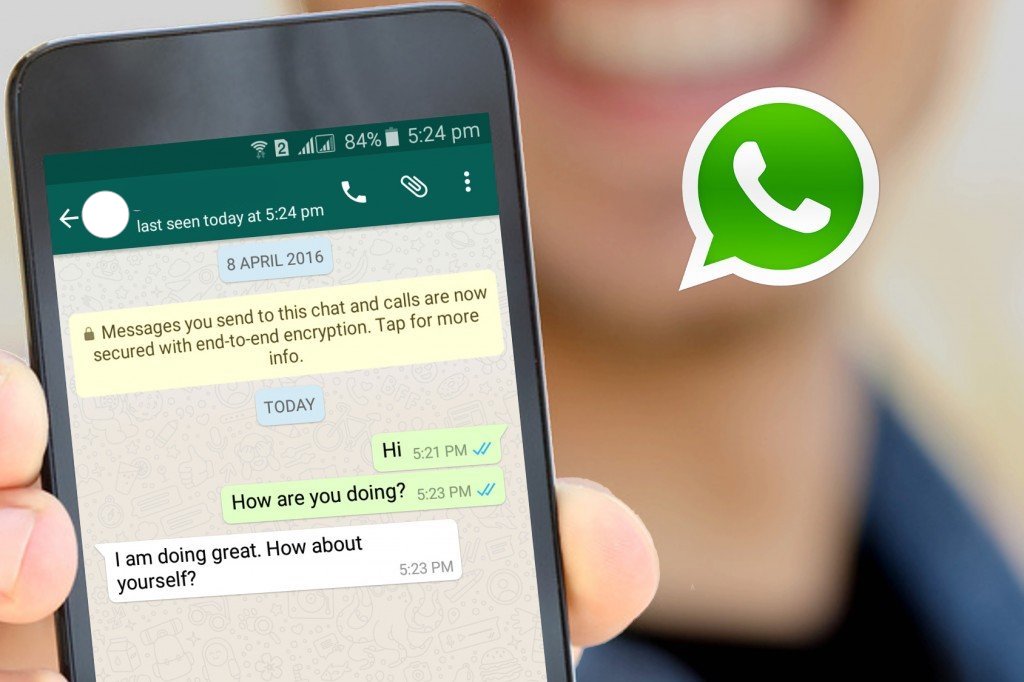WhatsApp Vs. Messenger
WhatsApp Vs. Messenger
In this third instalment of our versus series, we’ll be giving you all the action as the top instant messaging platforms go head to head. WhatsApp Vs. Messenger, which is more effective for your #ContentStrategy? Let’s find out...
3…
2…
1...
FIGHT!
ROUND 1: OVERVIEW
WhatsApp:
Founded in 2009 by 2 ex-Yahoo employees, WhatsApp quickly grew to be an extremely popular instant messaging platform. The app was then bought by Facebook in 2014 and is still going strong as the most used messaging app worldwide. Describing itself as ‘Simple. Secure. Reliable messaging,’ the app grew as an extremely popular alternative to SMS texting, transferring messages using Wifi/data, rather than counting as texts on a user’s phone contract. This works in a similar way to iOS’s own iMessage feature, but functions across different operating systems, meaning that, even if one user has an Android and another has an iPhone, neither has to miss out!
Messenger:
Messenger originated as Facebook Chat in 2008 - a messaging feature within the hugely popular social platform. In August 2011, the company released standalone ‘Messenger’ apps for iOS and Android apps, to work alongside Facebook’s main app, as an exclusively messaging-based platform. Initially, when Facebook moved their messaging function into a separate app, users weren’t happy about having to install and use a second app to access functionality that was previously available inside the main Facebook app. However, the app caught on and is still a popular way to keep in contact.
With its slogan, ‘Be together, whenever,’ Messenger prides itself as being ‘a simple way to text, video chat and plan things all in one place.’ Messenger, like WhatsApp, sends messages via Wifi/data, so is also brilliant way to communicate outside of SMS texting. Though not as popular as WhatsApp, Messenger still ranks in second place in the most used messaging platforms.
ROUND 2: ACCOUNTS
WhatsApp:
WhatsApp accounts work a little differently to many social platforms. You don’t need a username or password - just a phone number! Simply enter your phone number on the sign up page and confirm it. You’ll then receive an SMS text with a verification code to re-enter into WhatsApp and - voila! Your account is ready to be set up with a profile picture and name.
From here onwards, your account is associated with your phone number, which makes it incredibly simple to access, as you won’t need to remember a password or other login credentials. Plus, WhatsApp draws your contacts straight from your phone, so you can easily view who is also on the app and therefore who you can message via WhatsApp. The only issue with the login being associated with your phone number is that, if you move to a new phone number, you will have to decide between setting up a new account (and losing all chat history, etc.) or backing up and transferring all of this data to a new phone number - which can take a while if you have used the app a lot!
Messenger:
The majority of Messenger accounts are associated with Facebook profiles. This means that logging into the app requires your Facebook login credentials, which can make things much easier to log in from different devices. Your messenger account will therefore be associated with the full name provided to your Facebook account and those chatting with you will have a direct link to your Facebook profile.
However, Messenger also has the option to sign up with only a phone number, much like Whatsapp. This is valuable to those who prefer not to use a Facebook account, but still want the benefits of having non-SMS texting. To do this, a user would simply click ‘Not on Facebook?’ and create an account using their phone number instead.
ROUND 3: FEATURES
Calling:
While both WhatsApp and Messenger have audio and video call capabilities, placing calls on WhatsApp tends to be preferred as it allows you to place calls pretty well, even in places where signal strength is weak, working smoothly on 3G, 4G, Wi-Fi and even on 2G networks! However, WhatsApp only allows you to start a group call with a maximum of 4 people, whereas Messenger allows much bigger groups, so is preferable in a scenario where you need to speak to many people at once.
Multimedia:
Both platforms have a brilliant directory of GIFs and stickers to send to friends in chat. They both also allow the transfer of photo and video content in chats, as well as sharing documents with other users. In this sense, the platforms are on a pretty level playing field!
Customisation:
Messenger allows users to select a particular emoji and a colour for a particular conversation, which it then uses as a colour scheme, creating a gradient of colours for the chat bubbles, even converting all buttons in the chat window to the selected colour, and allowing users to send the chat’s selected emoji as a sticker. This means a user can select different colours and emojis for different chat windows, to reflect the moods or topics of each conversation. There’s even a 'dark mode,’ in Messenger, which is a frequently requested option for many apps recently. WhatsApp doesn’t have quite so much freedom of customisation in terms of its design, but it does allow you to use any image of your own (or choose from a selection of default images) to show as the background in your chats.
WhatsApp does allow users to easily set their own display name and profile picture within the app, whilst Messenger, however, pulls users’ profile images and names straight from their Facebook page. This can seem like a negative, but Messenger has a fun feature that lets users set different nicknames for themselves and their friends within each chat, which allows users some free reign.
Delete sent messages:
WhatsApp allows a user to delete sent messages, whether or not they have already viewed by a recipient. There is the ability to remove messages on Messenger when in ‘Secret Conversation’ mode, but, in standard Messenger chats, users can only delete messages from their own view, leaving them still viewable to other members of the conversation.
Broadcasts:
A winning point for WhatsApp is the ‘Broadcast’ feature, which enables users to send out broadcasts to a group of signed-up recipients. This is a brilliant feature that schools could make great use of, to send alerts straight to parents’ phones, for direct communication. No more relying on students to deliver urgent letters to their parents! For more detailed info on WhatsApp Broadcasts, be sure to check out our previous blog post: WhatsApp Broadcast: What do you need to know?
Messenger’s closest comparable feature would be their chatbot broadcast function, in which a page can send out messages to its followers. However, since April 2019, pages must be approved to gain access to the broadcast API.
ROUND 4: ENCRYPTION
Messenger:
Unlike WhatsApp, Messenger doesn't use end-to-end encryption by default. When you send a normal message in Messenger, it's encrypted on the way to Facebook's servers before being sent to the recipient, which means that Facebook does have access to your communications.
There is a ‘Secret Conversations’ feature, though, which allows you to create an end-to-end encrypted chat with your Facebook friends (without Facebook having any access). In this mode, messages can even ‘self-destruct’ if you want them to, effectively allowing you to unsend messages within the app.
Whatsapp:
WhatsApp uses end-to-end encryption to keep your messages completely private. End-to-end encryption ensures that only the participants of a conversation can see the messages and their contents. Even WhatsApp themselves cannot view your messages!
“Your messages are secured with locks, and only the recipient and you have the special keys needed to unlock and read your messages. For added protection, every message you send has a unique lock and key.”
Best of all, this all happens automatically! There’s no need to turn on specific settings to access this or to set up special secret chats, like on Messenger, to secure your messages. It’s all automatic and can’t be turned off.
Results
…
And that is the fight! Both challengers put up a good fight but only one can win.
WHO? To find out, simply fill in the form below to gain access to our exclusive @intSchools ratings!













